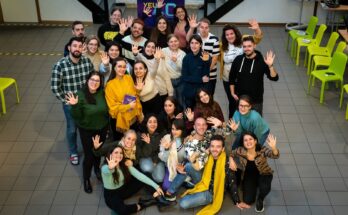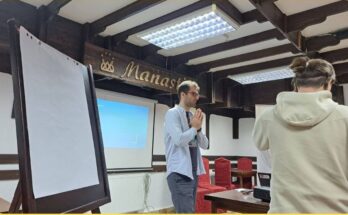FOR A SUCCESSFUL CONFERENCE ON THE FUTURE OF EUROPE
- The Conference on the Future of Europe represents a crucial opportunity to strengthen the democratic quality of the discussions on the future of Europe and a possibility to unlock useful reforms of the EU. Nonetheless, the success of the Conference will rest on several important factors, including a clear inter institutional agreement on the objectives of the Conference, its composition, the methods used to engage with citizens and collect their input, as well as the impact and breadth of the final proposals of the Conference.
- The crisis caused by the COVID-19 pandemic has made the emergency for much needed reform all the more evident. The initial uncertainty and slow response to the COVID-19 pandemic, as well as the lack of coordination we still witness in matters such as the reopening of internal Schengen borders, are all evidence of an EU still longing for a clear direction of travel. Citizens have clearly expressed in the past months that the future of Europe must be built on European solidarity. At the same time the proposals by the European Commission to address the crisis raise the issue of giving the European Union the powers to raise to and spend its own resources for European policies and projects, as well as develop a closer political union with more democratic institutions.
MANDATE OF THE CONFERENCE
- We, civil society organisations signatories of this statement, recommend that the scope of the Conference be broad and aimed at developing policy priorities that matter to citizens, as well as institutional proposals, including proposals for treaty change or a new treaty framework. The prospect of a European Constitution should be considered. The agenda and scope of the Conference must include both a critical assessment of the balance of competences between the EU and Member States, including the fiscal competencies of the European Union, as well as a thorough reconsideration of the balance of powers between the Institutions.
- Without an open mandate for clear proposals and without structured involvement of citizens and civil society, the Conference is likely to replicate existing and inconclusive forms of citizen engagement, such as the Citizens’ Dialogues, and be reduced to a mere communication exercise, which will lead to increased citizen’s distrust in democratic institutions.
COMPOSITION OF THE CONFERENCE, METHODOLOGY AND PROCESS
- The Conference should ensure wide participation and deep deliberation with citizens and civil society from across the Union, as well as from accession candidate countries and Eastern Neighborhood countries. In order to avoid the Conference replicating previous listening exercises and becoming just a 2.0 version of the Citizens’ Dialogues, its setup must be geared towards concrete and relevant results, ready for adoption by the Institutions.
- This composition of the Conference must therefore respect the principle of representative democracy and give decision-making power only to members with formal democratic legitimation. We recommend a composition modeled on the constitutional convention, including all EU institutions and national parliaments. In line with Article 11 TEU, European Civil Society Organisations should be involved in the Conference process in a structured manner and, in particular, they should have the opportunity to provide input at different stages of the work of the Conference and their advice be required on the main outcome of the Conference.
- We recommend a multi-step and multi-stakeholder approach, allowing for randomly selected citizens, and civil society organisations representing further citizens and their concerns, to give input at different levels of expertise using digital tools and deliberative polling, with final decision-making by the core Conference composed of representatives from the EU institutions, the Member States and the national legislatures, as well as representatives of the organised civil society. Finally, the process of the Conference must be supported by a wider effort for awareness-raising, including financial support to civil society organisations carrying out outreach activities to a wide range of citizens of different backgrounds, ages, and walks of life.
- We call for the establishment of Youth Agoras, composed of at least three people from each Member State, 16-29 years. Their scope must include all the topics addressed by the thematic Citizens’ Agoras. The highest standards of inclusiveness must be ensured, engaging young people from the most diverse range of backgrounds for a meaningful participation. The outcomes of these youth agoras should feature prominently throughout the Conference and its follow-up.
FOLLOW UP AND KICK-OFF OF THE CoFoE
- We demand a clear upfront commitment by the Institutions of the Union, as well as National Governments to deliver legislative proposals on all policy recommendations and initiate Treaty changes on all proposals adopted by the Conference.
- The aforementioned organisations welcome and support the position of the European Parliament that “the time is ripe for a reappraisal of the Union following 10 years of entry into force of the Lisbon Treaty and 70 years after the Schuman declaration”. The COVID-19 crisis has made the need for the Conference even more pressing. The Future of Europe CSO Network also regrets the lack of a Council position to this date, and urges the Member States to genuinely engage in negotiations with the European Parliament, take its commitment to European citizens seriously, so that the Conference on the Future of Europe may start in earnest.
- We affirm our commitment to and engagement with the Conference, as organised civil society and active European citizens, and urge European Institutions, Member States and the upcoming Presidency of the Council of the EU to ensure the Conference can start as soon as possible in Autumn 2020.
Leonie MARTIN Paolo VACCA
President Secretary – General
Young European Federalists [JEF] Union of European Federalists [UEF]


B-1000 Bruxelles B-1000 Bruxelles
info@jef.eu secretariat@federalists.eu
* The Future of Europe CSO Network is an informal group promoted by the Union of European Federalists (UEF) and the Young European Federalists (JEF) and including European civil society organisations, youth organisations, non-state actors and religious organisations that meet regularly, including experts and European decision-makers, to promote the role of civil society – and organised civil society – in shaping the Conference on the Future of Europe.
The following organisations participate in the meetings of the Future of Europe CSO’s Network:
Architects’ Council of Europe (ACE-CAE), European Students’ Forum (AEGEE), European Association for Local Democracy (ALDA), Arbeitsgemeinschaft der Evangelischen Jugend (AEJ – Church organisation under Art. 17 TFEU) Assembly of European Regions (AER) as a non-state actor, Civil Society Europe (CSE), Commission of the Bishops’ Conferences of the EU (COMECE – Church organisation under Art. 17 TFEU), Democracy International, Eastern Partnership Civil Society Forum (EaP-CSF), ECIT Foundation, European Center for Not-for-Profit Law (ECNL), European Foundation Centre (EFC), European Citizen Action Service (ECAS), EuropeanConstitution.eu, European Volunteer Centre (CEV), European Youth Forum, Fondation EURACTIV, garagErasmus Foundation, New Europeans, The Good Lobby, VolontEurope, the Young European Federalists (JEF) and the Union of European Federalists (UEF).




